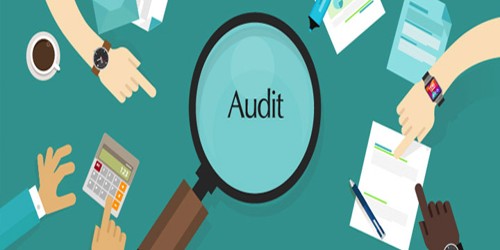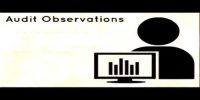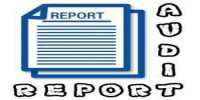Various kinds of threats the auditors may face in case of auditing the financial statements.
An Auditor is a person or a firm appointed by a company to execute an audit. The auditor’s job is to write a report at the conclusion of the audit which determines the level of accuracy and clarity that the organization has accounted for.
The various kinds of threats the auditor may face in case of auditing the financial statements are:
(a) Self-interest threats: Self acting threats that arise from auditors acting in their own interest. Self-interests include auditors’ emotional, financial, or other personal interests. Auditors may favor, consciously or subconsciously, those self-interests over their interest in performing a quality audit. For example, auditors’ relationships with auditee’s create a financial self-interest because auditee’s pay the auditors’ fees. Auditors also have a financial self- interest if they own stock in an auditee and may have an emotional or financial self-interest if an employment relationship exists between an auditor’s spouse and an auditee.
(b) Self-review threats: Self review threats that arise from auditors reviewing their own work or the work done by others in their firm. It may be more difficult to evaluate without bias one’s own work, or that of one’s firm, than the work of someone else or of some other firm. Therefore, a self-review threat may ante when auditors review judgments and decisions they or others in their firm base made.
(c) Advocacy threats: Advocacy threats that arise from auditors or others in their firm promoting or advocating for or against an auditor or its position or opinion rather than serving as unbiased attesters of the auditee’s financial information. Such a threat may be present for example. If auditors or others in the auditing firm seen as promoters for an auditee’s securities.
(d) Familiarity (or trust) threats: Trust threats that arise from auditors being influenced by a close relationship with an auditee such a threat is present when auditors are not sufficiently skeptical of an auditee’s assertions and, as a result, too readily accept an auditee’s viewpoint because of theft familiarity with or trust in the auditee. For example, a familiarity threat may arise when an auditor has a particularly close or long-standing personal or professional relationship with an auditee.
(e) Intimidation threats: This threats that arise from auditors being, or believing that they are being, overtly or covertly coerced by auditee’s or by other interested parties. Such a threat may arise, for example, if an auditing firm is threatened with replacement over a disagreement about an auditee’s application of an accounting principle, or if an auditor believes that an auditee’s expression of client dissatisfaction would damage his or her career within the firm.















